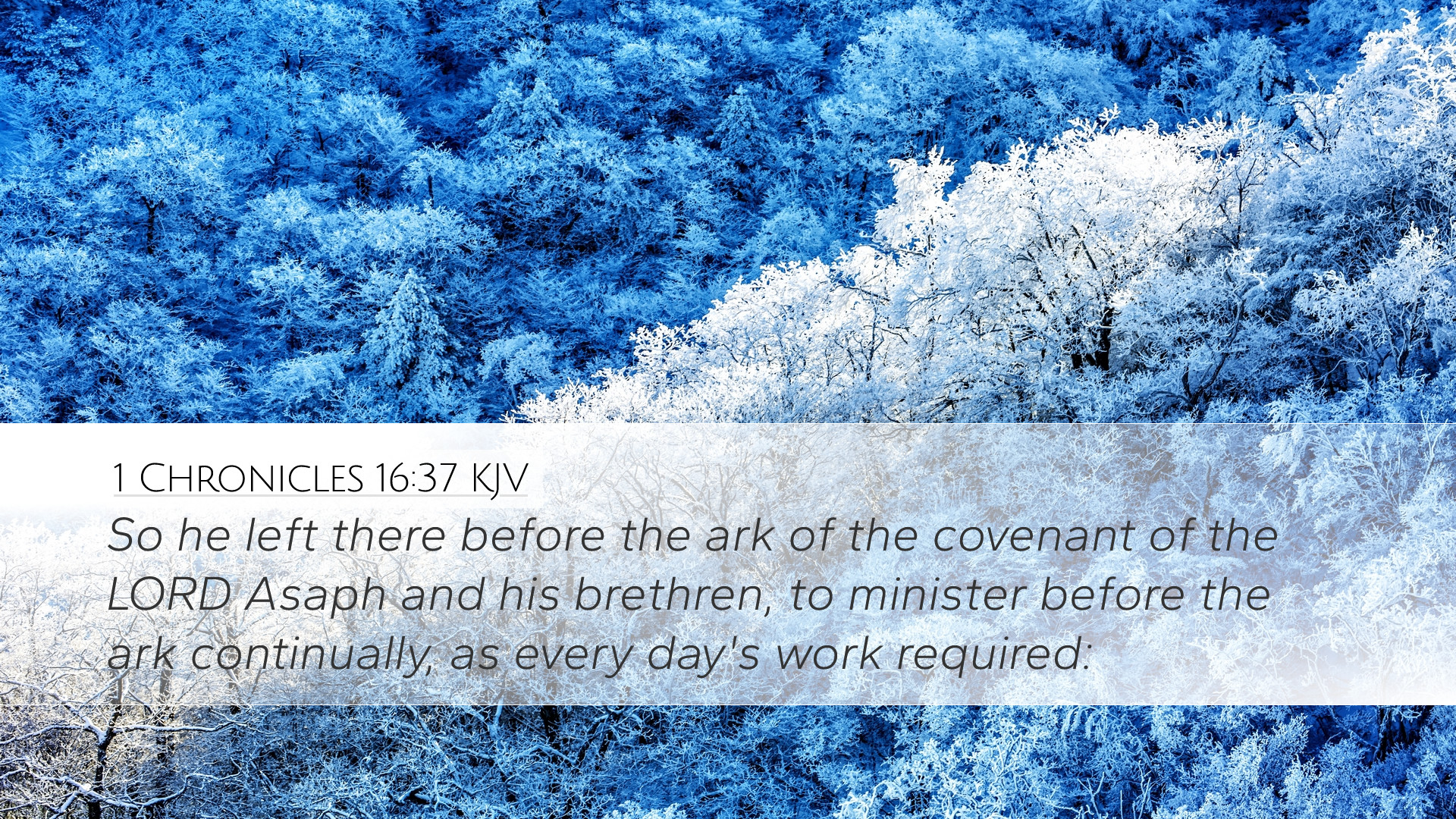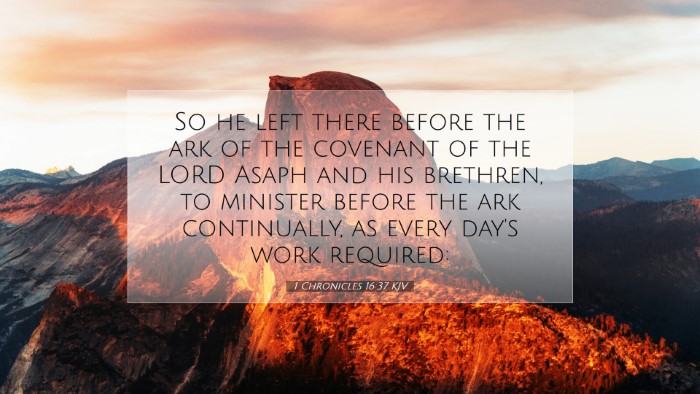1 Chronicles 16:37 Commentary
Verse: “So he left there before the ark of the covenant of the Lord Asaph and his brethren, to minister before the ark continually, as every day's work required.” (1 Chronicles 16:37)
Introduction
The context of 1 Chronicles 16:37 is pivotal for understanding the role of worship, the significance of the Ark of the Covenant, and the importance of appointed ministers in the house of God. This verse concludes a chapter dedicated to the worship of Yahweh following the return of the Ark to Jerusalem. It highlights the establishment of a continuous ministry centered around the Ark, underscoring the value of consistent worship in the life of Israel.
Historical Context
David's reign marks a shift towards centralized worship in Jerusalem, with the Ark of the Covenant symbolizing God's presence. As historical books like 1 Chronicles detail, David's leadership was characterized by a desire to honor God, culminating in the establishment of a priestly system devoted to worship in a communal and structured manner.
Insights from Matthew Henry
Matthew Henry emphasizes the significance of the Ark and the appointed ministers in this verse. He notes that David not only sought to honor God through the placement of the Ark in a special tent but also recognized the need for continual worship. Henry states:
-
Divine Presence: The Ark is representative of God's presence among His people, and thus it commands a dedicated ministry.
-
Continuity in Worship: The daily responsibilities of worship were vital; they exemplify the commitment required in honoring God continuously and without interruption.
Insights from Albert Barnes
Albert Barnes elaborates on the practical implications of this verse by asserting the organizational structure of worship in ancient Israel. He highlights the distinct roles assigned to those who ministered before the Ark:
-
Ministry Roles: The roles were not arbitrary but rather divinely instituted, thereby reflecting a pattern that ensures order and reverence in worship.
-
Everyday Worship: Barnes underscores that worship was not limited to special occasions but was the daily work of the priests, reminding believers today of the necessity of integrating worship into everyday life.
Insights from Adam Clarke
Adam Clarke's commentary brings forth the theological ramifications of the ministerial duties espoused in this verse. Clarke notes:
-
The Sacred Office: The call to minister before the Ark reflects a sacredness attached to the office, indicative of God's expectation of reverence and dedication from His servants.
-
Spiritual Leadership: Clarke suggests that the establishment of such ministry was God's provision for spiritual leadership that would guide the nation in proper worship and adherence to His commands.
Theological Reflections
This brief verse invites us to reflect on several profound theological themes that resonate through the scriptures:
-
The Nature of God’s Presence: The Ark represented God's covenant with His people, signifying His active presence in their midst. This principle translates into the New Covenant, where believers understand their bodies as temples of the Holy Spirit (1 Corinthians 6:19).
-
Worship as a Lifestyle: The emphasis on continuous ministry indicates that worship should be an intrinsic part of life for believers. Paul expressed a similar idea in Romans 12:1, urging followers to present their bodies as living sacrifices.
-
Service in the Community: Those chosen to serve symbolize the collective responsibility of the community to uphold worship. Just as Asaph and his brethren were called to minister, we too are called to contribute to the body of Christ (1 Corinthians 12).
Conclusion
1 Chronicles 16:37 serves as a reminder of the importance of dedicated worship and service before God. The appointed ministers, including Asaph, represent all believers who are called to a lifestyle of worship and ministry. This verse not only captures a moment in Israel's history but continues to inspire contemporary worship by calling believers to recognize their role in the divine narrative that celebrates God's presence among His people.


